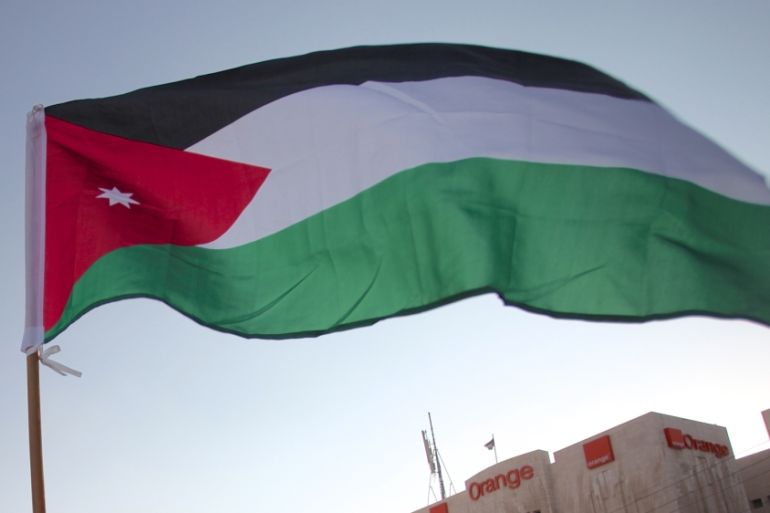Jordan’s elections explained in 500 words
Elections were first held in 1989 but Parliament’s power remains limited with King Abdullah II choosing the prime minister and 65-member senate.

Voters in coronavirus-battered Jordan go to the polls on Tuesday in legislative elections focused on its economic crisis, heightened by the devastating pandemic.
Calls on social media to postpone the elections have grown, but the government says the vote will go ahead despite the coronavirus. However, campaigning did have to move to videos posted on social media platforms.
Keep reading
list of 3 itemsJordan enters 48-hour nationwide coronavirus lockdown
Jordanian mall removes French products from shelves
Jordan has taken an economic hammering from COVID-19 with some $3bn lost in vital tourism revenues in the first nine months of 2020.
Here is a look at Jordan and the upcoming vote:
Monarchy from Mecca
Jordan’s royal family is the Hashemite dynasty that traditionally ruled over the Muslim holy city of Mecca and shares a common ancestor with the Prophet Muhammad.
Though the fall of the Ottoman Empire allowed the Hashemites to temporarily rule over Syria, Iraq, the Hejaz region of Saudi Arabia and the occupied West Bank, today they retain power only in the Hashemite Kingdom of Jordan.
Strategic player
Since Jordan lost the West Bank and East Jerusalem to Israel in the 1967 Arab-Israeli War, it has been left with stewardship only over East Jerusalem’s Muslim holy sites.
A little over half of Jordan’s population of about 10 million is of Palestinian descent. It is also home to some 2.2 million Palestinian refugees and more than 650,000 Syrian refugees, according to the UN refugee agency.
Jordan is allied with the US and was the second Arab country – after Egypt – to sign a peace treaty with Israel in 1994.
It has historically championed a two-state solution to the Israeli-Palestinian conflict.
Security issues
Since declaring independence from Britain in 1946, Jordan has had four monarchs: Abdullah I, Talal, Hussein, and today’s Abdullah II.
King Hussein was forced to make democratic reforms in the late 1980s after street protests, first holding elections in 1989.
But Parliament’s power remains limited, with the king choosing the prime minister and the 65-member senate.
Jordan has played a key role in the US-led coalition against the armed group ISIL (ISIS) in Syria and Iraq, carrying out air attacks and providing military bases.
The kingdom has been the target of several ISIL attacks itself.
The coronavirus crisis and the economy
Home to some of the world’s finest archaeological sites, including the ancient city of Petra, tourism normally accounts for 14 percent of Jordan’s GDP.
But the industry has been brought to a standstill by the COVID-19 pandemic.
In March 2020, the International Monetary Fund approved $1.3bn in aid for Jordan, subsequently adding about $396m in emergency funds to soften the impact of COVID-19.
Jordan has been among the hardest-hit countries and is still struggling to contain the spread of COVID, with 104,802 coronavirus cases and 1,181 deaths so far.
Only slightly larger than Portugal, Jordan has few natural resources and only one port, Aqaba, on the Red Sea.
Official figures put unemployment at 23 percent.
War in the region is further taxing resources. Prior to hosting Syrian refugees, Jordan also hosted refugees fleeing conflict in Iraq.
Jordan estimates the cost of hosting Syrian refugees at about $10bn and regularly complains of a lack of international support.